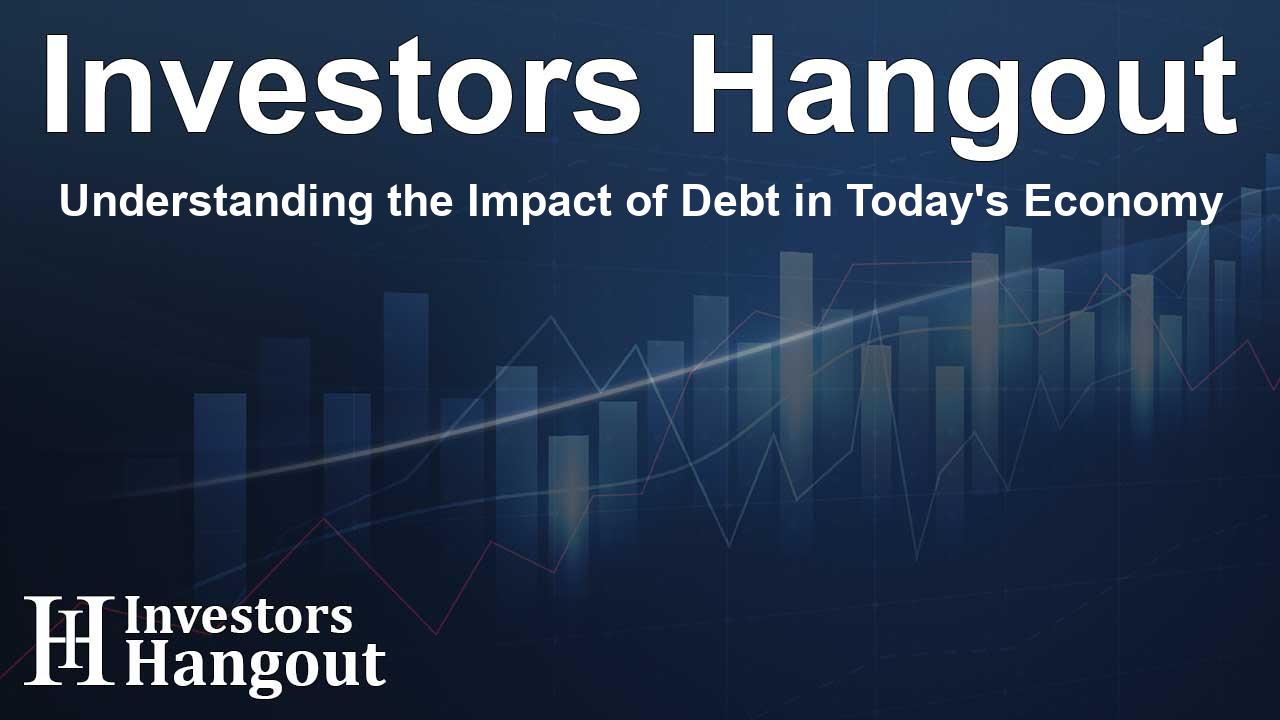Understanding the Impact of Debt in Today's Economy

The Role of Debt in Today's Economic Landscape
In a time when many individuals rely on credit cards with exorbitant interest rates, it is crucial to scrutinize the implications of this dependence. The reliance on high-interest credit cards often provides a temporary solution, yet it raises substantial questions about sustainability.
Understanding Easy Credit and Its Implications
Easy access to credit has long been a staple of modern financial systems. However, this convenience often comes at a cost. Credit cards with interest rates that soar to 21% or more are pervasive. While some may argue that individuals willingly accept these terms, the underlying economic realities complicate this perspective.
The Credit Model and Its Consequences
Many people find themselves in cycles of debt, which often begins with the allure of easy credit. These credit cards are marketed aggressively, appealing to consumers' desires for instant gratification. When individuals are granted credit, they may assume they can manage payments effectively, only to find themselves trapped by high interest and late fees that quickly accumulate.
Rising Expenses and Stagnant Wages
Compounding this issue is the stagnation of wages paired with the soaring cost of living. Individuals are forced to rely on credit to maintain what is perceived as the “American lifestyle,” which includes essentials like housing, food, and entertainment. The disparity between earnings and expenses is a key driver of financial distress.
The Economic Safety Valve: Credit
In many ways, easy credit acts as a safety valve in an economy that is increasingly difficult to navigate. It allows individuals to continue spending despite financial instability. However, this reliance can mask more significant economic issues, notably the relentless decay of purchasing power. Without addressing the root causes of this disparity, the gap between earnings and expenses is likely to grow, leading to increased discontent among the population.
Potential Reforms for Financial Stability
Imagining a scenario where credit card interest rates are capped at more reasonable levels could radically change the landscape. If credit card interest were capped similarly to mortgage rates, lenders might reconsider their strategies. This hypothetical change could reduce predatory lending practices, thus protecting vulnerable consumers from unsustainable debt burdens.
The Necessity for Change
It's clear that the current credit model benefits a select few at the expense of many. Advocating for reforms isn't merely about alleviating individual debt burdens; it's about fostering a sustainable economic environment that provides genuine opportunities for all. The concept of a debt jubilee may seem appealing, yet it's essential to recognize that any solution must address the systemic issues of wage stagnation and rising costs to be genuinely effective.
Recognizing the Bigger Picture
Without meaningful changes, the reliance on high-interest credit could very well lead to a societal reckoning. Many face the reality that the lifestyle they aspire to is increasingly unattainable without substantial income increases. As financial pressures mount, it is paramount for society to seek cohesion rather than division within the economic sphere.
Frequently Asked Questions
What is the primary issue with high-interest credit cards?
The primary issue is that they can lead to a cycle of debt, making it difficult for individuals to escape financial traps due to mounting interest and fees.
How does wage stagnation contribute to debt reliance?
Wage stagnation means that individuals cannot keep up with rising living costs, often forcing them to use credit to afford basic needs.
Could capping interest rates on credit cards help consumers?
Yes, capping interest rates could reduce the burden on consumers and prevent predatory lending practices.
What are the potential societal impacts of rising debt levels?
Increasing debt levels can lead to widespread discontent, potential unrest, and a greater divide between socioeconomic classes.
What reforms are necessary for a more stable economy?
Meaningful reforms must focus on increasing wages, addressing the cost of living, and imposing limits on credit card interest rates to protect consumers.
About The Author
Contact Dominic Sanders privately here. Or send an email with ATTN: Dominic Sanders as the subject to contact@investorshangout.com.
About Investors Hangout
Investors Hangout is a leading online stock forum for financial discussion and learning, offering a wide range of free tools and resources. It draws in traders of all levels, who exchange market knowledge, investigate trading tactics, and keep an eye on industry developments in real time. Featuring financial articles, stock message boards, quotes, charts, company profiles, and live news updates. Through cooperative learning and a wealth of informational resources, it helps users from novices creating their first portfolios to experts honing their techniques. Join Investors Hangout today: https://investorshangout.com/
The content of this article is based on factual, publicly available information and does not represent legal, financial, or investment advice. Investors Hangout does not offer financial advice, and the author is not a licensed financial advisor. Consult a qualified advisor before making any financial or investment decisions based on this article. This article should not be considered advice to purchase, sell, or hold any securities or other investments. If any of the material provided here is inaccurate, please contact us for corrections.
